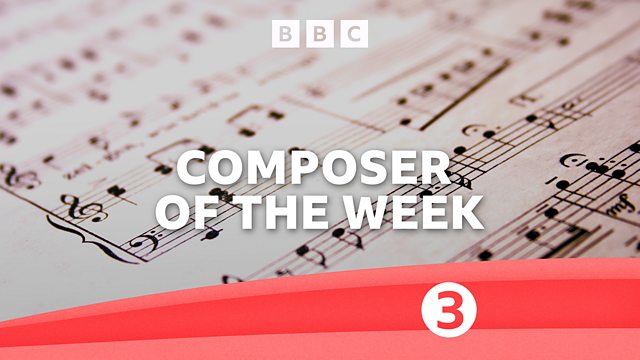
Stirring the Pot
Donald Macleod explores Mozart's characterisation of the troublemakers in his operas Die Zauberflote, Die Entfuhrung aus dem Serail, Le nozze di Figaro, Idomeneo and Don Giovanni.
Donald Macleod looks at the characterisation of the trouble-makers, an essential element of any good drama, in Mozart's operas Die Zauberflöte, Die Entführung aus dem Serail, le nozze di Figaro, Idomeneo and Don Giovanni.
Born in 1756, the theatre was a life-long passion for Mozart. Starting at the tender age of just 11, in the space of 22 years he produced an astonishing 24 theatrical works. His destiny was to follow in his father’s footsteps, as a court musician. Instead, by 1781, after a disagreement over his frequent absences from court, Mozart parted ways with his employer, the Elector of Cologne. He left Salzburg and servitude behind, to set himself up in Vienna, a thriving centre for music. The following year he triumphed with his comic singspiel, Die Entführung aus dem Serail. The succession of works that followed include many of the mainstays of operatic repertory, among them The Magic Flute, which was completed in the year of his death, at the age of 35 in 1791.
This week Donald Macleod finds connecting points between the characters Mozart created for the stage and the composer's own experiences in life. He examines how Mozart struggled to be a dutiful son, and how he tackles honour and duty in Idomeneo, Lucio Silla and Mitridate. The ideas of enlightenment that influenced Mozart's own views find expression in the balance of power he depicts between servants and the ruling classes in The Marriage of Figaro. The composer’s thorny path to marriage with Constanze also finds him examining the complexities of love in Die Enführung aus dem Serail and Così fan tutte. The series ends with Mozart's masterly representation of temptation and evil, as characterised by the ultimate bad boy Don Giovanni and the scheming and manipulative Queen of the Night.
In this final episode, The Queen of the Night has a fit of vengeful rage, Osmin is the shady overseer of the Pasha's harem, Marcellina and Bartolo team up to cause trouble for the engaged servants Susanna and Figaro. Monostatos gets his come-uppance, Electra's venomous rage is given free rein, and hell awaits Mozart's most famous baddie, Don Giovanni.
Die Zauberflöte (Act 2)
Der Hölle Rache kocht in meinem Herzen
Erika Miklósa, soprano, Queen of the night
Mahler Chamber Orchestra
Claudio Abbado, conductor
Die Entführung aus dem Serail (Act 1)
Solche hergelauf’ne Laffen
Alan Ewing, bass, Osmin
Les Arts Florissants
William Christie, director
Le nozze di Figaro (Act 1)
La Vendetta… via, resti servita
Kurt Moll, bass, Bartolo
Jane Barbié, mezzo soprano, Marcellina
Lucia Popp, soprano, Susanna
London Philharmonic Orchestra
Georg Solti, conductor
Idomeneo (Act 3)
Ha vinto amore …. d’Oreste, d’Aiace
Luca Tittoto, bass La voce
Richard Croft, tenor, Idomeneo
Bernarda Fink, mezzo soprano, Idamante
Sunhae Im, soprano, Ilia
Kenneth Tarver, tenor, Arbace
Alexandrina Pendatchanska, soprano, Elettra
Freiburg Baroque Orchestra
Rene Jacobs, conductor
Die Zauberflöte (Act 1, finale)
Wie stark ist nicht dein zauberton ...Es lebe Sarastro! Sarastro soll leben
Christoph Strehl, tenor, Tamino
Dorothea Röschmann, soprano, Pamina
Hanno Müller-Brachmann, bass baritone, Papageno
Kurt Azesberger, tenor, Monostatos
René Pape, bass, Sarastro
Matthias Bernhold, Martin Olbertz, Tobias Beyer, actors, slaves
Arnold Schoenberg Choir
Mahler Chamber Orchestra
Claudio Abbado, conductor
Don Giovanni (Act 2 Finale II)
Già mensa è preparata ... Ah dov’è il perfido?
Ildebrando d’Arcangelo, baritone, Don Giovanni
Luca Pisaroni, bass- baritone, Leporello
Joyce di Donato, mezzo soprano, Donna Elvira
Diana Damrau, soprano, Donna Anna
Mojca Erdmann, soprano, Zerlina
Rolando Villazón, tenor, Don Ottavio
Konstantin Wolff, bass-baritone, Masetto
Vokalensemble Rastatt
Mahler Chamber Orchestra
Yannick Nézet-Seguin, conductor
Producer Johannah Smith for BBC Wales
Last on
More episodes
Next
You are at the last episode
Music Played
-
![]()
Wolfgang Amadeus Mozart
Die Zauberflote, K 620 (Act 2, Der Hölle Rache kocht in meinem Herzen)
Singer: Erika Miklósa. Conductor: Claudio Abbado. Orchestra: Mahler Chamber Orchestra.- DEUTSCHE GRAMMOPHON : 477-578 9.
- DEUTSCHE GRAMMOPHON.
- 4.
-
![]()
Wolfgang Amadeus Mozart
Die Entfuhrung aus dem Serail, K 384 (Act 1, Solche hergelauf'ne Laffen)
Singer: Alan Ewing. Ensemble: Les Arts Florissants. Director: William Christie.- ERATO : 3984-25490 2.
- ERATO.
- 6.
-
![]()
Wolfgang Amadeus Mozart
Le nozze di Figaro, K 492 (Act 1, La Vendetta... via, resti servita)
Performer: Jane Berbié. Singer: Kurt Moll. Singer: Lucia Popp. Orchestra: London Philharmonic Orchestra. Conductor: Georg Solti.- DECCA : 410-1502.
- DECCA.
- 5.
-
![]()
Wolfgang Amadeus Mozart
Idomeneo, K 366 (Act 3, Ha vinto amore...d'Oreste, d'Aiace)
Singer: Luca Tittoto. Singer: Richard Croft. Singer: Bernarda Fink. Singer: Sunhae Im. Singer: Kenneth Tarver. Singer: Alexandrina Pendatchanska. Orchestra: Freiburg Baroque Orchestra. Conductor: René Jacobs.- HARMONIA MUNDI : HMC-902036.38.
- HARMONIA MUNDI.
- 9.
-
![]()
Wolfgang Amadeus Mozart
Die Zauberflote, K 620 (Act 1, Finale)
Performer: Matthias Bernhold. Performer: Martin Olbertz. Performer: Tobias Beyer. Singer: Christoph Strehl. Singer: Dorothea Röschmann. Singer: Hanno Müller‐Brachmann. Singer: Kurt Azesberger. Singer: René Pape. Choir: Arnold Schoenberg Chor. Orchestra: Mahler Chamber Orchestra. Conductor: Claudio Abbado.- DEUTSCHE GRAMMOPHON : DG 477-578 9.
- DEUTSCHE GRAMMOPHON.
- 14.
-
![]()
Wolfgang Amadeus Mozart
Don Giovanni, K 527 (Act 2, Finale)
Singer: Ildebrando d’Arcangelo. Singer: Luca Pisaroni. Singer: Joyce DiDonato. Singer: Diana Damrau. Singer: Mojca Erdmann. Singer: Rolando Villazón. Singer: Konstantin Wolff. Ensemble: Vocalensemble Rastatt. Orchestra: Mahler Chamber Orchestra. Conductor: Yannick Nézet‐Séguin.- DG : 477 9878.
- DG.
- 15.
Broadcasts
- Fri 19 Feb 2021 12:00BBC Radio 3
- Fri 13 Jan 2023 12:00BBC Radio 3








